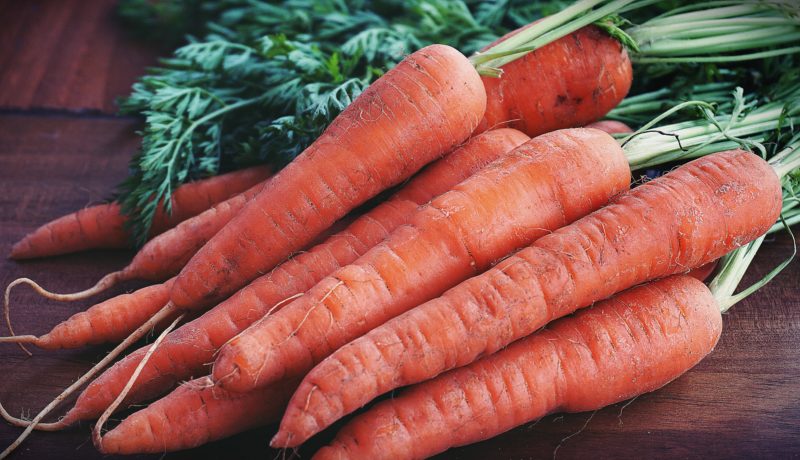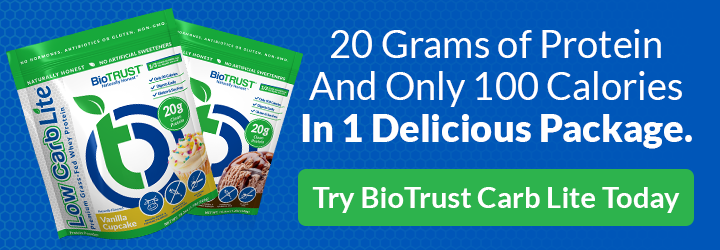Are Carrots Actually Good For You (or orange plant candy)?

Did you know carrots are the 6th most consumed vegetable in the U.S. (just behind potatoes, tomatoes, onions, head lettuce, and sweet corn)? Or that China is the world’s top carrot producer? In fact, that’s where about 45% of the total crop in the world is grown. Getting a little closer to home, in the U.S., the largest carrot-producing state is California.
Considering the prestigious spot of carrots, after all there are thousands of vegetables, one question to consider is: are carrots actually good for you?
Scientists have generally grouped fruit and vegetable intake in four color categories: green, orange/yellow, red/purple, and white. Foods with deeper shades of orange and yellow were determined to be the most protective against cardiovascular disease (CVD). And in this group, carrots were determined to be the single most CVD-risk-reducing food. Again, a very high honor for the carrot.
Evidence suggests that eating more antioxidant-rich fruits and vegetables, such as carrots, can help reduce the risks of cancer and, as previously mentioned, cardiovascular disease.
So, What Does a Carrot Do For Your Health?
So, what exactly do carrots provide nutritionally?

So, Are Carrots Actually Good For You?
Now, let’s get down to why you are here: are carrots good for you?
Carrots are a rich source of beta-carotene. The name beta-carotene comes from the Greek “beta” and Latin “carota” (carrot). Truth be told, beta-carotene in itself is not an essential nutrient, but vitamin A is, and the human body converts beta-carotene into the fat-soluble vitamin A. Vitamin A is necessary for good eye health/vision as well as for healthy skin and mucus membranes and the immune system.
Carrots have a reputation for being great for improved eyesight. This is because vitamin A deficiencies can lead to a progressive eye disease called xerophthalmia. This disease can damage normal vision, resulting in night blindness or the inability to see in low light. Fortunately, vitamin A deficiency is rare in the United States, and eating carrots contributes to vitamin A intake and helps prevent a deficiency.
While you have likely been told that carrots are necessary for great eyesight, most people are unlikely to experience much if any positive changes in their vision from eating carrots, unless they are already deficient in vitamin A.
While there is no official recommended dietary intake for beta-carotene, many experts suggest consuming three to six milligrams daily. This amount will maintain blood levels of the phytochemical associated with a lower risk of chronic diseases. In just a half-cup of cooked carrots, you’ll find 6.5 mg of beta-carotene, so you’ll easily get your daily requirements.
Research suggests that folks who consume four+ daily servings of beta-carotene-rich vegetables and/or fruits may lower their risk of developing cancer or heart disease.
The American Heart Association (AHA), for example, recommends consuming a fiber-rich diet as well as consuming more potassium and less sodium to protect against high blood pressure and heart disease. Carrots fit this recommendation well and also provide a healthy dose of vitamins B and C.
Coach Cristina’s Pro Tip: Since beta-carotene is fat soluble, it’s best absorbed if you eat carrots with a little fat or oil. All it takes is 3 to 5 g of fat in a meal (that is, about 1 tsp) to enhance the absorption of beta-carotene.
In addition, when you cook your carrots, rather than eating them raw, you get more beta-carotene as heating vegetables breaks down cell walls and releases antioxidants.
What about the glycemic index and sugar in carrots? Isn’t it high?
Contrary to what many people may believe, the glycemic index of carrots is 39, so the impact on blood sugar is fairly low. In fact, the antioxidants and phytochemicals in carrots may actually help regulate blood sugar. Who knew?
As far as the question, “Are Carrots Good For You?”, I’d say yes! Now, I wouldn’t ever put them in the same class as leafy greens, but they provide adequate fiber and vitamin A while not increasing your glycemic index.
What are the best ways to enjoy carrots? Let me count the ways:
- Include sliced or diced carrots in curry and stir-fry recipes.
- Grate raw carrots and add them to a whole-grain muffin batter before baking. (This also helps keep the muffins moist.)
- Add grated carrots to omelets, frittatas, pasta sauces, coleslaw, and green salads.
- Make a nutrient- and antioxidant-rich salad by combining grated carrots, beets, and apples—it’s surprisingly sweet, delicious, and crunchy.
- Make carrot soup by pureeing boiled carrots and potatoes (with chicken broth/stock). Add herbs and spices to taste.
- Enjoy a beta-carotene-rich protein shake by blending leftover cooked carrots (or one half-cup carrot juice), one banana, almond milk, and your favorite BioTrust protein powder. 😉
- Mix Dijon mustard, honey, and pepper with steamed or boiled carrots.
Coach Cristina’s Carrot Cake Protein Balls
And if you’re like me, and your favorite dessert is carrot cake, here is a recipe for some amazing carrot cake protein balls. You could substitute any flavor of protein powder here, but I am partial to the Vanilla Cupcake. Enjoy!
Ingredients:
- 1 cup almonds
- 3/4 cup rolled oats
- ½ cup Medjool dates
- 4 ounces applesauce
- 2 scoops Platinum1 Vanilla Cupcake
- 1 tsp cinnamon
- ½ tsp nutmeg
- 1 carrot, grated
- ¼ cup coconut, shredded
Directions:
- Blend almonds and oats in a food processor. *I used my NutriBullet®.
- Add dates, applesauce, Platinum1, and spices, and blend again until a dough forms.
- Add grated carrot until thoroughly mixed.
- Roll dough into balls, then roll each one in the coconut.
- Refrigerate for at least 30 minutes.
- Enjoy your carrot cake protein balls!
- Store in an airtight container in the refrigerator.
Nutrition Information:
Yields 12 balls/1 ball per serving
- Calories: 99
- Fat: 4 g
- Carbohydrates: 10 g
- Protein: 5 g







